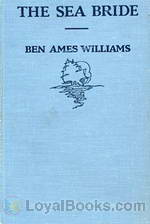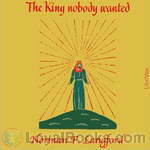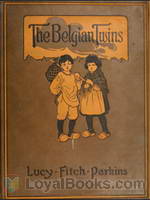|
Books Should Be Free Loyal Books Free Public Domain Audiobooks & eBook Downloads |
|
|
Books Should Be Free Loyal Books Free Public Domain Audiobooks & eBook Downloads |
|
Top Authors |
|---|
|
Book type:
Sort by:
|
By: John Maynard Keynes (1883-1946) | |
|---|---|
 Economic Consequences of the Peace
Economic Consequences of the Peace
The Economic Consequences of the Peace (1919) was a best seller throughout the world, published by John Maynard Keynes. Keynes attended the Versailles Conference as a delegate of the British Treasury and argued for a much more generous peace with Germany. The book was critical in establishing a general worldwide opinion that the Versailles Treaty was a brutal and unfair peace towards Germany. It helped to consolidate American public opinion against the treaty and involvement in the League of Nations... | |
 A Treatise on Probability
A Treatise on Probability
| |
By: Ben Ames Williams | |
|---|---|
 All the Brothers Were Valiant
All the Brothers Were Valiant
Joel Shore, newly appointed captain of the whaling ship Nathan Ross following his brother’s apparent demise as captain of the same ship, elects to make his first cruise as captain to the very location where his brother had last been seen – the Gilbert Islands, in order to try to learn more about what happened to his brother. The focus of this tale is of that voyage halfway around the globe and the adventures which he and his crew encounter. | |
By: Hélène A. Guerber (1859-1929) | |
|---|---|
 Myths of the Norsemen From the Eddas and Sagas
Myths of the Norsemen From the Eddas and Sagas
| |
By: H. A. Guerber (1859-1929) | |
|---|---|
 Story of the Greeks
Story of the Greeks
This book is a collection of stories and histories about the Ancient Greeks, including many of their famous myths! | |
By: Hélène A. Guerber (1859-1929) | |
|---|---|
 Legends of the Middle Ages Narrated with Special Reference to Literature and Art
Legends of the Middle Ages Narrated with Special Reference to Literature and Art
| |
 Stories of the Wagner Opera
Stories of the Wagner Opera
| |
 Contes et légendes 1re Partie
Contes et légendes 1re Partie
| |
 The Book of the Epic
The Book of the Epic
| |
By: Ben Ames Williams (1889-1953) | |
|---|---|
 The Sea Bride
The Sea Bride
| |
By: Clarence Day, Jr. (1874-1935) | |
|---|---|
 This Simian World
This Simian World
Clarence Day, Jr., best known for his work Life with Father, presents a satirical speculation on how the world might be different if we apes had not risen to prominence, but rather one of the other species had become dominant in our place. | |
By: Frédéric Bastiat | |
|---|---|
 Sophisms of the Protectionists
Sophisms of the Protectionists
"To rob the public, it is necessary to deceive them," Bastiat said and believed. He reasoned, employing repetition to various applications, against fallacious arguments promoting the "Protection" of industries to the detriment of consumers and society. (Introduction by Katie Riley) | |
By: John William Polidori (1795-1821) | |
|---|---|
 The Vampyre; a Tale
The Vampyre; a Tale
| |
By: Frédéric Bastiat (1801-1850) | |
|---|---|
 What Is Free Trade? An Adaptation of Frederic Bastiat's "Sophismes Éconimiques" Designed for the American Reader
What Is Free Trade? An Adaptation of Frederic Bastiat's "Sophismes Éconimiques" Designed for the American Reader
| |
By: Helen Bannerman (1862-1946) | |
|---|---|
 Little Black Sambo
Little Black Sambo
| |
 The Story of Little Black Sambo and The Story of Little Black Mingo
The Story of Little Black Sambo and The Story of Little Black Mingo
| |
 The Story of Little Black Mingo
The Story of Little Black Mingo
| |
By: A. D. F. (Alfred Dwight Foster) Hamlin (1855-1926) | |
|---|---|
 A Text-Book of the History of Architecture Seventh Edition, revised
A Text-Book of the History of Architecture Seventh Edition, revised
| |
By: Norman F. Langford | |
|---|---|
 The King Nobody Wanted
The King Nobody Wanted
In a very real and interesting way, The King Nobody Wanted tells the story of Jesus. Where the actual words of the Bible are used, they are from the King James Version. But the greater part of the story is told in the words of every day. (Introduction by N. F. Langford) | |
By: Maria Gentile | |
|---|---|
 The Italian Cook Book
The Italian Cook Book
One of the beneficial results of the Great War has been the teaching of thrift to the American housewife. For patriotic reasons and for reasons of economy, more attention has been bestowed upon the preparing and cooking of food that is to be at once palatable, nourishing and economical.In the Italian cuisine we find in the highest degree these three qualities. That it is palatable, all those who have partaken of food in an Italian trattoria or at the home of an Italian family can testify, that it is healthy the splendid manhood and womanhood of Italy is a proof more than sufficient... | |
By: Sofronio G. Calderón (1878-1954?) | |
|---|---|
 Diccionario Ingles-Español-Tagalog Con partes de la oracion y pronunciacion figurada
Diccionario Ingles-Español-Tagalog Con partes de la oracion y pronunciacion figurada
| |
By: Saint Augustine (354-430) | |
|---|---|
 The Confessions of St. Augustine
The Confessions of St. Augustine
| |
By: Charles Johnson (fl. 1724-1736) | |
|---|---|
 Pirates
Pirates
| |
By: Stanley Waterloo | |
|---|---|
 The Story of Ab
The Story of Ab
This is the story of Ab, a man of the Age of Stone, who lived so long ago that we cannot closely fix the date, and who loved and fought well. | |
 The Wolf's Long Howl
The Wolf's Long Howl
| |
 A Man and a Woman
A Man and a Woman
| |
By: Hamilton Wright Mabie (1846-1916) | |
|---|---|
 Myths That Every Child Should Know
Myths That Every Child Should Know
A selection of famous and timeless myths, adapted for a junior audience. | |
 Folk Tales Every Child Should Know
Folk Tales Every Child Should Know
We have always loved stories. people have always entertained each other by telling tales around the campfire; traveling storytellers were huge crowd-pullers. Many of these stories were passed down through the generations, largely unchanged. "The stories made by the people, and told before evening fires, or in public places and at the gates of inns in the Orient, belong to the ages when books were few and knowledge limited, or to people whose fancy was not hampered by familiarity with or care for... | |
 Legends That Every Child Should Know; a Selection of the Great Legends of All Times for Young People
Legends That Every Child Should Know; a Selection of the Great Legends of All Times for Young People
| |
 Heroes Every Child Should Know
Heroes Every Child Should Know
The endeavour has been made in this volume to bring together the heroic men of different races, periods and types; and in the selection of material the most attractive, intelligent and authoritative literature has been drawn upon. In cases in which the material selected belongs distinctively to the best literature, no changes have been made, although narratives have been abbreviated; in cases in which the material has a historical rather than a distinctively literary quality, the text has been treated for "substance of doctrine," and omissions have been freely made, and connecting words, phrases and even sentences have been introduced to give the narrative clear connection and completeness... | |
 Books and Culture
Books and Culture
| |
 Essays on Work and Culture
Essays on Work and Culture
The author investigates the world of work against a backdrop of culture. Each of the 25 essays focuses on one aspect of the topic. For example, the first essay, "Tool or Man?" looks at two views of man. One is that of strength as the provider of security. The other is that of aesthete, as an enthusiast of the arts or academics or religion. In our culture, provider of security is the winner every time. Man as a source of multiple talents cannot be allowed. As the author frames the argument, "Specialisation has been carried so far that it has become an organised tyranny... | |
 Under the Trees and Elsewhere
Under the Trees and Elsewhere
| |
By: Lucy Fitch Perkins | |
|---|---|
 The Belgian Twins
The Belgian Twins
This story is based upon the experiences of two Belgian refugees in World War I. When their parents are marched of by Germans, Jan and Marie are left alone. Now they, along with their dog, have to find their parents! | |
 The Dutch Twins
The Dutch Twins
The Dutch Twins are Kit and Kat, 5 years old and not yet big enough to be called by their real names, Christopher and Katrina. They live in a typical Dutch household, around the turn of the last century. The book follows their day-to-day adventures and accidental mishaps. The book is the first of a series of stories about twins in different countries, meant to give children an idea of life and customs in various parts of the world. | |
 The Irish Twins
The Irish Twins
| |
 The Puritan Twins
The Puritan Twins
| |
 The Eskimo Twins
The Eskimo Twins
| |
 The Japanese Twins
The Japanese Twins
| |
 The Spartan Twins
The Spartan Twins
| |
 The Cave Twins
The Cave Twins
| |
 The Italian Twins
The Italian Twins
| |
 The Mexican Twins
The Mexican Twins
| |
 The French Twins
The French Twins
| |
 The Swiss Twins
The Swiss Twins
| |
By: Friedrich Engels (1820-1895) | |
|---|---|
 Condition of the Working-Class in England in 1844
Condition of the Working-Class in England in 1844
This is Engels' first book (since considered a classic account of England's working class in the industrial age), which argues that workers paid a heavy price for the industrial revolution that swept the country. Engels wrote the piece while staying in Manchester from 1842 to 1844, based on th bohis observations and several contemporary reports conducted over the period. | |
 The Origin of the Family, Private Property and the State
The Origin of the Family, Private Property and the State
| |
 Feuerbach: The roots of the socialist philosophy
Feuerbach: The roots of the socialist philosophy
| |
 Landmarks of Scientific Socialism "Anti-Duehring"
Landmarks of Scientific Socialism "Anti-Duehring"
| |
By: Joseph Addison (1672-1719) | |
|---|---|
 The Spectator, Volumes 1, 2 and 3
The Spectator, Volumes 1, 2 and 3
| |
 Essays and Tales
Essays and Tales
| |
By: Isaac Asimov (1920-1992) | |
|---|---|
 Youth
Youth
| |
By: David Eugene Smith (1860-1944) | |
|---|---|
 The Hindu-Arabic Numerals
The Hindu-Arabic Numerals
| |
 History of Modern Mathematics Mathematical Monographs No. 1
History of Modern Mathematics Mathematical Monographs No. 1
| |
By: Kate Douglas Wiggin (1856-1923) | |
|---|---|
 Penelope's English Experiences
Penelope's English Experiences
Penelope's English Experiences is a fictional travelogue, which documents the experiences of three American ladies on a visit to England. Included are scenes in London and the village of Belvern, containing fanciful sketches of a West-end ball, portraits of domestic originals, etc., characterized by humorous trifling and droll exaggeration of English traits. By the author Mother Carey's Chickens, A Cathedral Courtship, etc. | |
 A Cathedral Courtship
A Cathedral Courtship
A romantic comedy. A pretty young American girl tours English Cathedrals, with her very blue-blooded Aunt. Then boy meets girl. Boy chases girl. Boy loses girl. Boy finds girl. Finally, girl catches boy with the help of a mad bull. | |
By: Kate Douglas Smith Wiggin (1856-1923) | |
|---|---|
 The Birds' Christmas Carol
The Birds' Christmas Carol
| |
 The Girl and the Kingdom Learning to Teach
The Girl and the Kingdom Learning to Teach
| |
 Ladies-In-Waiting
Ladies-In-Waiting
| |
By: Kate Douglas Wiggin (1856-1923) | |
|---|---|
 Rose O' The River
Rose O' The River
Rose Wiley is a pretty country girl. She's engaged to Stephen Waterman, a country boy. She is quite content, until Claude Merril, a man from Boston, tells her that her love is ruining Stephen's life. A cute coming-of-age novel. | |
By: William Fairham | |
|---|---|
 Woodwork Joints How they are Set Out, How Made and Where Used.
Woodwork Joints How they are Set Out, How Made and Where Used.
| |
By: Cory Doctorow (1971-) | |
|---|---|
 Ebooks: Neither E, Nor Books
Ebooks: Neither E, Nor Books
| |
By: Thomas Babington Macaulay Macaulay (1800-1859) | |
|---|---|
 Lays of Ancient Rome
Lays of Ancient Rome
| |
 The Miscellaneous Writings and Speeches of Lord Macaulay Complete Table of Contents of the Four Volumes
The Miscellaneous Writings and Speeches of Lord Macaulay Complete Table of Contents of the Four Volumes
| |
 Miscellaneous Writings and Speeches
Miscellaneous Writings and Speeches
| |
 Miscellaneous Writings and Speeches — Volume 3
Miscellaneous Writings and Speeches — Volume 3
| |